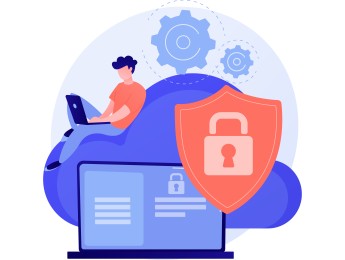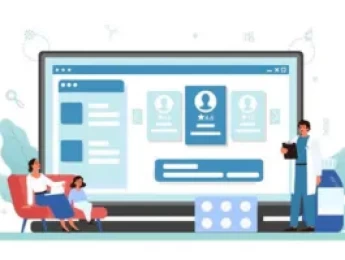Meeting compliance obligations under ISO 17025 and ISO 9001 (Good Laboratory Practice) is essential in a laboratory setting. These requirements are relevant throughout the operation, including auditing and reviewing laboratory testing processes and procedures, reviewing technical requirements and system usage, and keeping accurate records of previous analytics to learn lessons for future development.
Alongside legal requirements, laboratories have to ensure that their operation meets the needs of clients and customers to maintain a steady feed of results and keep up with health and safety obligations. They must ensure that employees are safe at work and that anything leaving the laboratory is fit and safe for purpose.
To achieve a productive, safe, and fully functioning laboratory environment, it’s important to create and follow a quality manual, document control system, and appoint a beneficial supply chain. All processes must be internally audited and followed by all staff members from the bottom up.
Implementing the LIMS means assessing current personnel, equipment, data, and traceability to ensure good performance and future strategic thinking.
Upon completion of this course, participants will be able to:
- Employ basic guidelines in your organisation for the efficient function of a laboratory.
- Understand health and safety obligations to pass assessments and legal audits.
- Develop technology that works towards your business goals.
- To create a reliable supply chain network and business continuity plan to ensure your lab can continue to run under stress.
- Create effective and accurate audit trails and document management for referral.
- Operate Good Laboratory Practice (GLP) throughout your organisation.
- Develop key quality assurance processes and understand their importance.
- Continuously review your laboratory practices to flag weaker areas or areas for improvement.
- Achieve Multilateral Agreements (MLAs, MRAs, and ILACs) under accreditation bodies.
This course would suit anyone involved in quality assurance within a laboratory environment or anyone responsible for continuous improvement while adhering to health and safety regulations. It would be most beneficial for:
- Technical Personnel within Analytical Laboratories
- Managers of Oil Refinery, Food and Technology Industries
- Laboratory Technicians
- Auditors
- Planning Managers
- Operations Managers
- Accreditors
- Scientific Personnel
- Risk Assessors and Consultants
Due to its high-level nature, this course uses a variety of learning styles to ensure comprehension. Participants will participate in group discussions to determine problem areas and learn the best tools and techniques to create an adequate audit trail and regular risk assessment.
They will have access to presentations and videos regarding best practices and maintenance of secure and safe laboratories and be provided with real-world cases regarding the consequences of compliance failure and contingency recognition.
Day 5 of each course is reserved for a Q&A session, which may occur off-site. For 10-day courses, this also applies to day 10
Section 1: ISO 17025 Requirements
- ISO 17025 run-through and requirements.
- Assessing your current position.
- Your organisation’s responsibilities.
- Tendering requests.
- Developing a reliable supply chain.
- Subcontractors and contingency metrics.
Section 2: Internal Audits
- Document control and audit measures.
- The basics of LIMS design.
- Risk assessments and records.
- Preventative and corrective actions.
- Complaint responses and proactive corrective actions.
- Record control and monitoring.
Section 3: Quality Assurance Tools
- Understanding your customers and clients.
- Non-conformance control.
- Effective preventative actions.
- Supply chain assessments - finding the right people.
- Developing adequate control case data.
Section 4: Technical Requirements
- Creating a LIMS traceability tool.
- Your personnel - scientific and administrative.
- Managing the workload smartly.
- Sampling and testing methods and evaluation.
- Your uncertainty measurement.
- Environment and its effect on data and measurements.
Section 5: Equipment
- Reliable equipment and traceability.
- Reference materials and standards.
- In-house testing vs. subcontracting against budget requirements and feasibility.
- Electronic results transmission.
Section 6: Accreditations
- Stakeholders and partners.
- Monitoring progress against objectives.
- Your competitor evaluation to general industry standards.
- Quality assurance testing methods.
- MLAs, MRAs, and ILACs.
- The contribution of analytical data.
Section 7: Implementation, Review & Testing
- Strategic project planning.
- Contingency implementation.
- Testing laboratory-built methods against non-standard methods.
- Test certificate formatting and requirements.
- Test certificate opinions and interpretations (O&Is).
- Preparing for accreditation and upkeep.
Upon successful completion of this training course, delegates will be awarded a Holistique Training Certificate of Completion. For those who attend and complete the online training course, a Holistique Training e-Certificate will be provided.
Holistique Training Certificates are accredited by the British Assessment Council (BAC) and The CPD Certification Service (CPD), and are certified under ISO 9001, ISO 21001, and ISO 29993 standards.
CPD credits for this course are granted by our Certificates and will be reflected on the Holistique Training Certificate of Completion. In accordance with the standards of The CPD Certification Service, one CPD credit is awarded per hour of course attendance. A maximum of 50 CPD credits can be claimed for any single course we currently offer.
Categories
Technology,- Course Code IND02-118
- Course Format Classroom, Online,
- Duration 5 days









